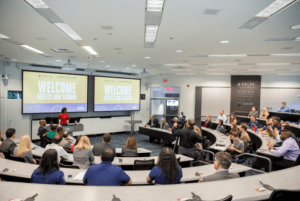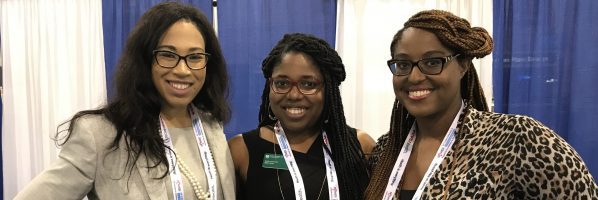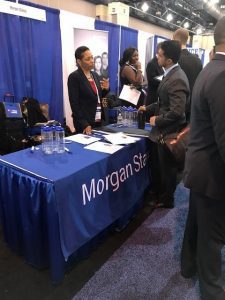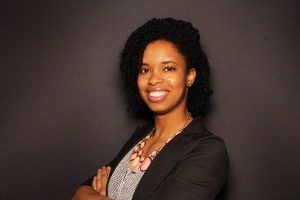New Leadership Hub Opens at Goizueta as Part of Delta Air Lines Foundation Gift

Earlier this month, Emory University’s Goizueta Business School and the Delta Air Lines Foundation launched the new Delta Leadership Hub on campus. The hub is a state-of-the-art classroom and event space that will serve as a focal point for various leadership initiatives and business school events.
Creation of the hub was made possible thanks to a $3.5 million gift to the business school from the Delta Air Lines Foundation. That gift will also support a “three-pronged leadership development program focused on academic, experiential, and reflecting learning for Delta Leadership Coaching Fellows,” explains a press release. The program helps second-year MBA students practice and improve their leadership, team-building, and feedback skills while also providing mentorship opportunities for first-year MBA students. The entirety of the gift will help the business school serve more students by expanding its coaching and training opportunities.

A look inside the Emory Delta Leadership Hub.
The hub welcomes students with a dramatic glass entrance featuring the Delta Leadership Hub logo. Inside the classroom, students and instructors will find an open space with tiered seating, large screens, and the ability to connect their devices wirelessly via Mersive Solstice technology. In the foyer, students will notice “jetways” with clean lines and multiple display monitors.
“We are proud to open this premiere space for leadership learning with Goizueta,” Tad Hutcheson, Senior Vice President of the Delta Air Lines Foundation, said in a statement. “Giving back to the communities where we live, work, and serve is core to Delta, starting with our hometown of Atlanta.”
The Delta Air Lines Foundation is a nonprofit corporation that focuses on giving to education, health, and wellness areas. Its contributions are unrestricted, allowing recipients to use their funds as needed.
This article has been edited and republished with permissions from Clear Admit.
The Top 5 Reasons Diversity MBA Conferences Should Be on Your Recruiting Calendar

Pictured above: Tuck second-year MBA students Bianca Goins, Sadé Lawrence, and Jodine Gordon.
More than 10,000 MBA students, business school representatives, recruiters, and business executives filled the Pennsylvania Convention Center in Philadelphia late last month for one of the largest career conferences serving minority professionals. The conference has been around since 1970, but for the first time this year the National Black MBA Association (NBMBAA) and Prospanica, the association of Hispanic professionals, joined forces to present it. The result was an incredible opportunity for attendees to network with companies and each other, take advantage of career development programming, and interview for and secure job offers from hundreds of companies spanning multiple industries.
Cornell’s S.C. Johnson Graduate School of Management had a group of approximately 55 students attend, a mix of first-year and second-year students, according to Cynthia Saunders-Cheatham, Executive Director of Johnson’s Career Management Center.
“It was double what we have had in recent years, and perhaps the largest attendance we ever had for an MBA diversity conference,” she said. “Having a joint NBMBAA/Prospanica conference, in addition to the Philadelphia location that was driving distance away [from Ithaca, NY, where Johnson is located], helped to drive attendance.” The connections that students made while there have already resulted in multiple job offers, she added.
While securing a job or internship is a primary reason many MBA students choose to attend the National Black/Prospanica conference and others like it, that’s just one of many potential benefits events like this offer. Given that this most recent conference was right here in our hometown of Philadelphia, we went to check things out for ourselves. Through conversations with attendees, school representatives, and recruiters, we’ve compiled the following list of reasons why this year’s crop of applicants should be sure to add diversity MBA conferences to their recruiting calendar next summer and fall.
1. Unparalleled Recruiter Access—Including Many That Don’t Come to Campus
The Career Expo, which took place on the last two days of the five-day National Black/Prospanica conference, filled a cavernous hall in the Convention Center and included booths from close to 300 companies spanning dozens of industries. Among them were coveted post-MBA tech employers like Google and Amazon, consulting industry leaders including Bain & Company and Accenture, and financial services firms such as BlackRock, Bank of America, and Morgan Stanley. There was a continuous gaggle at the Google booth, and one of its MBA internship recruiters, Tanya Choudhury, had to resort to wearing a sign by the second day explaining that she’d lost her voice.
Big pharma and healthcare were also well represented, with booths attended by recruiting representatives from drug maker AstraZeneca to medical products and equipment company Zimmer Biomet and many in between. Leading consumer packaged goods (CPG) firms including PepsiCo, General Mills, and Proctor & Gamble were also there, as were oil and gas giants like BP, Chevron, and Exxon.

Morgan Stanley was one of almost 300 exibitors in the conference’s packed Career Expo.
But there were also plenty of organizations that are perhaps less top of mind as potential MBA recruiters—the Central Intelligence Agency, the U.S. Department of State, Teach for America, and USAID, for example—who were just as eager to share how highly they value the MBA skillset. Dozens of leading business schools also had booths, largely to provide support and serve as gathering places for students who were attending, but also with an eye out for promising diverse talent. For example, Roberto Martinez, a Senior Talent Acquisition Consultant for Dartmouth College—home to the Tuck School of Business—was eagerly distributing glossy handouts touting the school’s varied career opportunities, commitment to diverse hiring practices, and excellent benefits. “We’re here not only to support students but also to hire more diverse staff to campus,” he said.
For Tuck second-year MBA student Bianca Goins, the breadth of companies at the expo was a big part of the draw. “I wanted a diverse group of companies to look at in a single spot,” she said. “There are so many companies here, and as second-year you can really come and pick and choose the experiences you want to have.”
Tiffany Anderson, a second-year student at Emory’s Goizueta Business School, was also impressed by the sheer number of companies present. A self-proclaimed conference veteran, she also attended National Black last year, as well as conferences presented by the Forté Foundation, the Consortium for Graduate Study in Management, Management Leadership for Tomorrow, and JumpStart. “Out of all the diversity conferences, I would certainly say this is the flagship,” she said. “Wow! There are A LOT of companies here,” she recalled thinking to herself as she walked in. More so than last year, before National Black and Prospanica teamed up, she added.
“I have seen the most people—students from many different schools and recruiters from many different functional areas of interest,” she continued. “It seems to be the most diverse in terms of attendees, degree of programming, and companies in attendance. For the majority of people, this is going to be one of the best to attend.” Anderson estimates that there were probably 30 or so Goizueta students there, a mix of first- and second-years.
2. Multiple Touch Points and Opportunities for Face Time
For some students, certainly, the primary purpose in attending the conference is to land a job. Second-year IU Kelley School of Business MBA student Henrique Barbosa, a native of Brazil pursuing travel hospitality, had a simple answer when asked why he was there: “To get a job!” He acknowledged that most of the firms he was interested in only conduct first-round interviews at the conference followed by second-round interviews on site, which lessened the likelihood of his leaving with an offer in hand. “But it would be great if it happened,” he said.
But several other students were less interested in job or internship offers—or even in early round interviews. For Jodine Gordon (Tuck ’18), the biggest factor in her decision to attend was hearing success stories from Tuck grads whose higher-level touch points with conference recruiters later helped them secure offers. “I have a couple companies on my list, but really I just want to meet as many people as possible so they can get to know me and I can get face time,” she said.
Sadé Lawrence, also a second-year student at Tuck, was likewise attracted by the opportunity to get in front of recruiters in person. “For a lot of opportunities you might be interested in, you start online at a website, applying through data base,” she said. “But coming here they now have a face with your name, and there are all kinds of organic connections that can happen,” she added. “It’s kind of amazing that you are able to build connections with people even at such a big conference, but you are. You make contacts and get lots of face time—so much more so than you can blindly through a website,” she continued. “What I have heard more of is people have an interaction with a recruiter here that leads to an interview later—here is more about entering the pipeline.”
Tuck’s Goins has taken the opportunity to network with recruiters who don’t make it to Tuck’s campus, but also those who do. “With every interaction, you are getting a more nuanced understanding of the company and can take that information and use it in subsequent interactions.”
3. Valuable Chances to Network with Peers
Goizueta’s Anderson interned in operations at Google over the summer—an opportunity she got through another diversity conference—and has been offered a full-time position on the tech giant’s Mountain View campus after she graduates. Despite having that full-time offer in hand, attending the conference still made lots of sense.
Kelley School second-year student Luis Vilchez Kupres, a native of Peru, also converted his summer internship—in supply chain operations at Cummins—into a full-time offer. So his reasons for attending the conference were not to get a job. ”I am here to support fellow Kelley first- and second-years and network a little more,” he said. He also gets to reconvene with students from other schools he met at last year’s Prospanica conference. “Often, you connect with somebody and they will help you connect with someone else,” he said. “Networking definitely helps—even among other MBA students.”

Tiffany Anderson, Goizueta MBA ’18, a diversity MBA conference veteran
For the Google-bound Anderson, the value of peer networking can’t be stressed enough. Being able to connect with students from other schools is the part she finds most enjoyable—but it’s also strategic. “When candidates are selecting a school they like to look at the size of the network they are going to get—and that’s great,” she said. “But the way I see it, I don’t have to be at Stanford or Wharton because I have friends at Stanford and Wharton. So in a way that’s kind of my network, too.”
“You have that domino effect,” she continued. If she’s trying to connect with someone at a company where she doesn’t have a contact or her classmates don’t have contacts, she can reach out to a friend at another school to see if there’s someone in their network. “Some might say, ‘Well, they’re a peer, they’re not an employer, they’re not going to get me a job.’ But there is so much more benefit to expanding your network. I don’t think everyone understands that.”
Of course, peer networking can be a two-way street. “My motivation to expand my network comes from wanting to help others as well,” Anderson said. “When you are part of these diversity networks, one of the great things is you are going to have a friend who says, ‘Do you know someone who can help me with this?’ And I can say, ‘Well, I met someone at a conference who does that very thing and I’m happy to put y’all in touch.’”
Advice for Entrepreneurial MBA Students from a Successful Goizueta Alum

Over the last few years, interest in entrepreneurship has increased among MBA students at many leading business schools. According to the 2017 GMAC Alumni Perspectives Survey Report, more than one in 10 alumni run their own businesses (11 percent)—the same percentage as those choosing to work in finance and accounting.
So, it’s not surprising that many top programs are increasing their focus on providing entrepreneurial learning opportunities within their MBA programs. At Emory University’s Goizueta Business School, for example, there are many opportunities to explore entrepreneurship through classes such as “Applied Entrepreneurship,” “Entrepreneurial Practicum,” and “Appcology,” which focuses on emerging forms of applications and services and how they are altering software ecosystems and commerce interactions. There’s an annual Emory Entrepreneurship Summit that is designed to encourage and support entrepreneurs across the university with pitch competitions, keynote speakers, and valuable networking opportunities. And recently, the one-year MBA class class also had an opportunity to hear directly from a successful alumnus about his journey as an entrepreneur.
Matt Fishman, a ’13 MBA and CEO and co-owner of Barking Hound Village, visited campus to talk about how MBA students can make the most of their time in school with an eye toward maximizing the success of their ventures down the road. Barking Hound Village, which Fishman and a fellow Goizueta alumnus purchased in April 2017, is Georgia’s largest dog daycare, boarding, and grooming business with six locations throughout Atlanta.

Inside Barking Hound Village
In addressing students at his alma mater, Fishman’s advice was wide ranging but coalesced around a few key tenets:
Focus on Your MBA Connections
After graduating from Goizueta, Fishman stayed in touch with his MBA classmates. He regularly met up with a group of five alums to discuss opportunities and ideas. It was from these discussions that the thought of purchasing Barking Hound Village came about. “One day, we started to run with the idea, and one thing led to another,” Fishman said in the question-and-answer session with current students.
Fishman’s Goizueta connections proved invaluable throughout the process. He purchased Barking Hound Village with a fellow Emory classmate, Matt Gryder, and since that day has had to protect that connection by putting their “friendship above all of it.” That’s meant a clear division of responsibilities. “We have an operating agreement that’s 50, 60 pages that divvies out duties, equity, all sorts of things,” said Fishman. “It’s constant checks and balances. It’s probably one of the most difficult things.”
Because the connections he made at Goizueta proved to be one of the most important aspects of his MBA experience, he encouraged current students to take advantage of every opportunity to meet new people in the program. “The most valuable thing that you’re going to get out of this place is the network,” he said. “You have to make yourself uncomfortable and sit next to different people, get in different groups, put yourself out there, meet people.”
Don’t Forget to Network
Alumni connections aren’t the only relationships that have been helpful for Fishman. Networking, in general, has been important to his success. For example, it was while Fishman was working as an analyst before business school at security and investment advisory firm Voya and dealing with investments in the pet space, veterinary roll-ups, and retail that he discovered Barking Hound.
As for Fishman’s advice to MBA students, “With networking, get outside your comfort zone.” He continued, saying: “Networking’s tough. Things don’t always come of it, but it’s a game of odds. For maybe 800 people, you get a few back. Be persistent. It gets competitive because everybody’s trying to distinguish themselves. You have to be real, be yourself.”
Understand Your Business
You need to understand your business before you jump into it. For Fishman, he learned a lot of what he needed to know about owning and running a pet business while he was at Voya. “I got access to the books, learned the layout of the land, and built a thesis,” he said. “It’s happenstance, and then you try to line up your cards as much as you can.”
But that was only the beginning. Fishman also took time to understand how to value a dog daycare company before they made any decisions to move forward with a purchase. “The equity side, you have to knock it out in the beginning. So that’s what we did,” said Fishman.
Then, from there, it was all about learning the business. Fishman considers himself a numbers guy, so he had to learn persistence and human capital. He also had to learn about the challenges of being in a service-based business. “You have HR issues,” Fishman stated. “You have leases. For every aspect of it, there’s a legal side that you have to think through.”
Cross Things Off Your Bucket List
For Fishman, starting a business was an item on his bucket list. “It was an itch,” he said. “ I always wanted to be an entrepreneur.” So, he decided to go after it at a time when failure would have relatively little long-term impact. This is the same advice he offers MBA students.
“If you have an idea, or you want to try something new and crazy, whatever, do it,” said Fishman. “If you have ideas, entrepreneurial ideas, take advantage of the fact that you have more time now,” he continued. “Think through or outline some ideas that you might have and chase after them. Look at everything from a downside case. If I’m going to do something entrepreneurial, I don’t yet have a family, so my downside was falling about as low as it’s going to be from here on out.”
So far it has all come together for Fishman since his ’13 MBA, and he encouraged students to take the same risks he did. “There’s nothing to lose with trying to do something and failing in the next nine months. So if there’s a bucket list, it’s to take advantage of your time.”
For more of Fishman’s advice, view the full story at EmoryBusiness.com.
This article has been edited and republished with permissions from Clear Admit
Choosing the Best Business School for Consulting

If you are a prospective MBA applicant looking to business school as a way to enter or accelerate your career in the consulting industry, you are certainly not alone. According to the 2017 Prospective Student Survey conducted by the Graduate Management Admissions Council (GMAC), consulting is once again the most sought-after postgraduate industry, with 33 percent of applicants surveyed citing consulting firms as their destination of choice. The consulting function, too, is a top draw. One in four indicated it as their chosen job function, after just marketing/sales (30 percent) and finance/accounting (28 percent).
With so many MBA graduates vying for roles in the consulting field, one of the best ways to distinguish yourself is by going to one of the business schools best known for training top-notch consultants. Of course, this requires thorough research and a deep knowledge of individual school programs. Lucky for you, Clear Admit has done some of the legwork.
Consulting Continues to Be a Top Draw for MBAs
Finance—and investment banking in particular—took a hit following the financial crash of 2008. And the tech sector has been gaining ground as a top destination for MBA grads. But along the way, the consulting industry has held its own, with MBAs clamoring to work for both towering giants in the field as well as at an increasing number of boutique firms now in the marketplace.
What’s the allure? Part of it is the diverse work. Consultants get to think creatively and solve problems, analyze both the big picture and the details, and work on teams juggling multiple assignments. Top salaries don’t hurt either. Recent MBA graduates taking jobs at firms like McKinsey & Company, Boston Consulting Group (BCG), and Bain & Company—known as ‘the MBB firms’ in industry parlance—reported base salaries in 2017 of between $147,000 to $152,500, with additional signing bonuses of $25,000, according to managementconsulted.com, an online resource for the consulting industry.
Choosing the Best Business School for Consulting
Determining which leading business school will best prepare you for a career in consulting requires looking at a range of factors. A logical place to start is by examining career outcomes at individual schools, both in terms of summer internships and full-time jobs. If possible with the available data, you also want to get a sense of how well a school has done placing career-switchers, namely those without prior consulting experience, in coveted consulting roles, since barriers for entry for these grads are understandably higher than for their counterparts who have already worked in the field.
It can also be instructive to see which of the powerhouse consulting firms donate to which leading business schools. Finally, it helps to understand how a given school goes about teaching its students to be consultants, what role experiential learning plays, whether you can hope to learn directly from superstar professors in the field, and what extracurricular resources are in place to help you land your dream consulting gig.
Consulting at UVA Darden
The University of Virginia’s Darden School of Business sent more of its MBA graduates into consulting than any other U.S. school, with 38 percent of the Class of 2016 pursuing work in the consulting industry and 38 percent choosing a consulting function. By comparison, Harvard Business School (HBS) sent 25 percent of its 2016 graduates into consulting, and Stanford Graduate School of Business sent just 16 percent.
As for the top recruiting companies at Darden, Boston Consulting Group snapped up 18 members of the Class of 2016, followed by McKinsey & Company (14), PwC (13), and Accenture (10).
In terms of pay, the average base salary for a Darden MBA heading into consulting was $135,771 with a signing bonus of $26,927. While this isn’t the highest salary in the industry—it falls a few thousand dollars short of offers reported by students at schools like Kellogg School of Management—it is the highest average salary for all Darden MBAs.
Darden’s Classroom, Curriculum, and Professors
As for how Darden trains its MBAs to enter a career in consulting, the school offers a career track concentration in strategy consulting. This concentration is designed to immerse MBA students into the consulting process by helping them identify and deepen their consulting skill sets.
Darden is also known for its case study method of teaching and learning. This method confronts Darden MBA students with challenging, real-life business situations and teaches them how to analyze each situation to come up with a solution—just as they will be called upon to do in a consulting career. Over the course of MBA students’ two years at Darden, they’ll complete in more than 500 case studies on a variety of topics, industries, and diverse environments.
As for Darden’s faculty, many of the school’s professors have an in-depth knowledge of consulting with a breadth of research dedicated to all facets of the field. For example, Samuel E. Bodily, a professor of business administration, teaches “Decision Analysis” to first-year students and “Management Decision Models” to second-year students while also consulting with many corporations, utilities, and government agencies. And Scott. C. Beardsley, Darden dean since 2015, spent 26 years at McKinsey & Company before joining the school.
Outside the Classroom
Darden is home to the Consulting Club, a student organization designed to support students interested in the consulting industry. The club regularly holds events such as consulting industry panels, networking 101, consulting conferences, case competitions, mock interview sessions, internship preparation workshops, and more. And many large consulting companies are club sponsors, including Deloitte, AT Kearney, Bain & Company, EY, and Accenture.
In addition, there are also a variety of consulting projects for MBAs to participate in. These projects help MBAs learn how to develop business plans, create financial forecasts, and perform marketing analysis. For each project, teams of three to six students will work with corporations, global businesses, or non-profit organizations to provide strategy evaluation and planning services.
INSEAD For Consulting
In terms of sheer numbers, no school sends more students into consulting jobs than INSEAD. According to the school’s latest 2016 MBA employment report, 46 percent of INSEAD MBAs took a job in the consulting sector and 48 percent assumed a consulting function. That’s a whopping 479 students accepting a position as a consultant—almost half of the 999 students who filled out the employment report.
INSEAD’s MBA graduates took jobs with such companies as McKinsey (which hired 125 INSEAD grads in 2016), BCG (67), Bain (48), Strategy& (24), and Accenture (16). And it’s no wonder the major players like INSEAD. Many alumni hold prominent positions such as chairmen, CEO, or senior leader at these same top consulting firms.
As for where these consulting grads work, they’re spread out around the world. More than 100 consulting graduates took jobs in Western Europe, 41 of those in the United Kingdom. Another 83 graduates headed off to consulting offices in Asia Pacific, including 23 each in Singapore and Australia. But the single most attractive country for INSEAD consulting grads was the United Arab Emirates, which drew 42.
INSEAD also features an alliance with the University of Pennsylvania’s Wharton School, allowing INSEAD students to spend one of their five periods studying at the U.S. school. INSEAD has a similar campus exchange with Kellogg as well. These exchanges afford INSEAD students access to those schools’ career management centers as well, which can be especially valuable in terms of making connections to U.S. recruiters for students who are interested in working in consulting in the United States after graduation.
In terms of what its consulting grads command in salary, INSEAD also shows strong numbers, albeit lower than Kellogg and Darden. For 2016, the overall mean salary in consulting was $107,300 USD, the overall median salary was $109,500 USD, and the overall annual median sign-on bonus was $25,000, with 76 percent of salaries coming with a sign-on bonus and 83 percent with a performance bonus around $24,500.
Proud of its success in helping career switchers enter new industries, INSEAD shares data about how many of its graduates heading into consulting started out there and how many used business school to make a pivot. Of those graduates taking jobs in consulting after INSEAD, 67 percent held pre-MBA roles in consulting. But 34 percent of those who were financial services professionals also successfully switched to consulting, as did 56 percent of former technology, media, and telecommunications professionals and 38 percent of former corporate sector professionals.
How Consulting Is Taught at INSEAD
INSEAD’s accelerated 10-month MBA is composed of five, eight-week periods built around core courses and electives and concluding with an exam, essay, and/or project. There is no preferred teaching method at INSEAD; instead, individual professors choose the method they feel is best. However, no matter the teaching style or technique, each class is sure to have lively exchange opportunities and diverse study groups.
In terms of core courses, students will start out their first eight weeks with an “Introduction to Strategy” course and will continue their learning into the next period with “Process & Operations Management.” As for electives, over a dozen courses are offered under the Strategy heading including the “Strategy Lab,” which provides MBA students with a practitioner’s view of how consultants tackle projects.
Who Trains Consultants at INSEAD
There are more than 25 resident strategy professors across INSEAD’s three campuses, as well as around a dozen visiting faculty members. Of these, several are former consultants, bringing experience straight from the trenches at McKinsey, Monitor Group, and Accenture, among other leading firms.
Two INSEAD professors, W. Chan Kim and Renée Mauborgne, authored a best-selling book called Blue Ocean Strategy, which spawned the 2007 launch of the INSEAD Blue Ocean Strategy Institute. The institute offers several programs and electives that support the development of aspiring consultants, including a mini-elective, “Blue Ocean Strategy Simulation,” that lets students apply the trademark Blue Ocean Strategy toward managing a fictional company.
Beyond the Classroom at INSEAD
INSEAD’s accelerated 10-month program can make it hard for some student groups to gel, but despite this obstacle, the INSEAD Consulting Club seems to have an active campus presence. Much like at Darden, the Consulting Club at INSEAD provides resources to help INSEAD students prepare for consulting interviews and careers, including workshops, networking, and recruiting events with consulting firms. It also publishes the INSEAD Consulting Club Handbook, free to Consulting Club members, which offers an overview of the industry, profiles of individual firms, and sample cover letters, résumés, interview tips, and practice case questions.
INSEAD also features regular consulting case competitions, including the A.T. Kearney Global Prize Competition. As many as 15 teams from INSEAD compete against each other, with winners advancing to represent INSEAD in a regional competition against seven other European business schools. The winning European school then battles the winning North American school for the Global Prize.
A Recommendation Revolution Is Underway in MBA Admissions: What You Need to Know

I’m busy, you’re busy, your boss is most definitely busy. Indeed, publications ranging from Men’s Health to the Atlantic, the Washington Post to Forbes are all reporting that “busyness“ has become the new status symbol for our times. Which is part of what makes asking someone to write you a letter of recommendation for business school so daunting. Now, try telling that person that you actually need five different letters for five different schools. Oy vey.
As uncomfortable a spot as it puts applicants in—it’s no better for recommenders. Even your most vociferous supporter is going to wonder what in the world she’s gotten herself into when she realizes that helping you in your pursuit of acceptance to business school means taking time away from work or play or family or whatever else to labor over leadership assessment grids, each a little different from the one before, and write 10 slightly different answers to 10 slightly different questions. Here’s hoping that your top-choice school doesn’t happen to be the last one she gets around to…
Good news. The graduate management education industry recognizes the strain that letters of recommendation put on applicants and recommenders alike and has been wrestling with ways to make the process easier for everyone involved. To this end, the Graduate Management Admission Council (GMAC) established a committee made up of admissions representatives from dozens of leading business schools to brainstorm about ways to lessen the burden while still collecting the third-party assessments of candidates that are so critical to the MBA application process.
GMAC Pilots Common MBA Letter of Recommendation
As an outgrowth of that committee’s work, GMAC last year piloted a common MBA letter of recommendation (LOR) that schools can choose to incorporate into their applications to reduce the burden placed on applicants and recommenders alike.
“The Common Letter of Recommendation (LOR) effort is intended to save you and recommenders valuable time by providing a single set of recommendation questions for each participating school,” reads the GMAC website. “This allows your recommenders to use the same answers for multiple letter submissions, alleviating the workload of having to answer different questions for each school multiple times. You benefit because it makes the ask for several different letters to be written on your behalf much easier.”
Cornell’s Johnson Graduate School of Management, NYU Stern School of Business, and Michigan’s Ross School of Business were among the first schools to pilot the Common LOR last year. In addition to a single set of open-ended essay questions, the pilot Common LOR also included a leadership assessment grid inviting recommenders to rate applicants on 16 “competencies and character traits” grouped into four main categories of achievement, influence, personal qualities and academic ability.
“At Johnson, we saw the Common LoR as a clear opportunity to improve the admissions process for candidates and their recommenders in a way that would also add value to our own assessment of applicants,” Judi Byers, Johnson executive director of admissions & financial aid, told Clear Admit. “A thorough and consistent review is important to us and the grid provides a straightforward base of insights that can be assessed and compared reliably while the accompanying letter adds meaningful detail and context,” she added.
Soojin Kwon, managing director of full-time MBA admissions and program at Ross, sees applicants and recommenders as the main beneficiaries of the Common LOR and is pleased that more schools are coming on board. “As more schools adopt it, applicants won’t have to feel like they’re burdening their recommender with completing multiple rec letters with different questions and ratings grids,” she told Clear Admit. “This year, more than a dozen of the top 20 schools are using it.”
Ross was also among the schools to first pilot the Common LOR last year, and Kwon served as part of the GMAC committee that helped craft it.
Common Questions Easy to Agree on, Common Leadership Grid Not
“What we found in using the Common LOR this year past year was that the questions gave us helpful insights into applicants, particularly on the important area of constructive feedback. The questions, however, were fairly similar to what we and other schools were using before, so it was easy for the AdCom to use it,” she notes.
Those questions are as follow:
- Please provide a brief description of your interaction with the applicant and, if applicable, the applicant’s role in your organization. (50 words)
- How does the performance of the applicant compare to that of other well-qualified individuals in similar roles? (E.g. what are the applicant’s principal strengths?) (500 words)
- Describe the most important piece of constructive feedback you have given the applicant. Please detail the circumstances and the applicant’s response. (500 words)
- Is there anything else we should know? (Optional)
“The rating grid was quite different from what we’d used in the past,” Kwon continued. “It was also the most difficult part for the GMAC advisory group to develop and get agreement upon. The group worked this past year to revise and simplify the grid so that AdComs could get more meaningful insights from it.”
This year, the 16 competencies and character traits from the original grid have been distilled to 12, with specific questions about analytical thinking and information seeking omitted. Johnson and Ross have both incorporated the revised leadership grid into the LOR distributed to applicants as part of their applications, as have most other schools that have this year decided to incorporate both the grid and open-ended essay question portions of the form. UT’s McCombs School of Business and Rice University’s Jones Graduate School of Business, notably, still seem to feature the earlier version of the leadership grid in their application, the one that calls on recommenders to assesses applicants on 16 competencies and traits.
How Emory Goizueta Helps Underprivileged Students Earn an MBA

When you decide to apply for an MBA program, there are a number of new questions you’ll need to answer. Where would be the best place to earn the degree? What program best fits my career needs? What should I focus my business school studies on?
Among all the other decisions a prospective MBA will need to make, how to pay for the degree may be the last thing on their mind.
It’s no secret that the cost of an MBA—plus the lost income while earning your degree—is intimidating for many prospective students. Many students may choose not to earn an MBA or not to apply to a school that fits their skill and needs due to the price tag. If this seems unjust to you, you’re not alone. Many business schools have committed to making their programs accessible and affordable for low-income students.
The Goizueta Business School at Emory University is just one of those schools, offering a number of loan and scholarship opportunities to help students pay for their degree. Below, we’ve rounded up some of the ways Emory helps to ensure all students—regardless of income—can earn a Goizueta MBA.
How Underprivileged Applicants Can Earn An Affordable Emory MBA
Grants & Scholarships
Grants and scholarships offer students an extremely valuable and all-too-often underutilized opportunity to pay huge portions of tuition without the frustrating proposition of paying it back later. Such funding can be based either on academic merit or financial need.
Tuition Credits: There are a number of tuition credits available for students who fall into specific categories, such as Emory University Alumni, Graduates of the Goizueta Business School Executive Education Program, active duty military and veterans, and applicants working full-time at a 501(c)(3) non-profit. Emory Employees and dependent family members may also be eligible for tuition credits, depending on years of service.
Veteran’s Education Benefits: Veterans and the dependents of veterans may be eligible for monthly education benefits, such as tuition remission. Students looking to receive Veterans benefits who also need additional sources of funding may still do so, and the benefits received will not be considered when determining financial need.
Scholarships: Goizueta offers students the chance to earn a number of potential scholarships based on merit. Many scholarships are offered through partnerships with Atlanta professional organizations. These include:
- Georgia Hispanic Chamber of Commerce: Two $25,000 scholarships
- Department of Health & Human Services: Thirty percent discount on tuition for qualified individuals
- National Association of Asian American Professionals: Two $25,000 scholarships
- Women in Technology: Two $25,000 scholarships
There are also a limited number of honorary scholarships awarded to students after enrollment. The MBA for Executives Class Gift Scholarship, originally endowed by the class of 2005, is offered to students in a professional or field generally underrepresented in the EMBA program. Also available is the Executive Women of Goizueta (EWG) Scholarship, given to accomplished female executives in the Goizueta MBA for Executives program.
Loans
Graduate Loans: Those attending business school are afforded the same federal loan offerings as students starting undergraduate programs. Students may fill out the Free Application for Federal Student Aid (FAFSA) to help determine their financial need and eligibility. Each year, students should fill out a new FAFSA form to reevaluate their need. International MBA students are also eligible for certain types of student loans, which can be explored further here.
